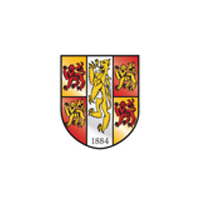Linguistics
Position Details (PhD Program)
Linguistics as a subject has been taught at Bangor University since the 1960s, making our department one of the first linguistics departments in the UK.
We are a vibrant, accessible, friendly department with staff committed to providing an excellent doctoral student experience and strong academic support for the duration of your studies.
Our academic staff provides expertise and PhD dissertation supervision in wide range of disciplines within Linguistics . This includes (but is not limited to) projects using qualitative, quantitative, experimental or ethnographic methodologies.
Students on our Linguistics PhD programme at Bangor University have access to state-of-the-art learning facilities which include:
- A professional grade sound / recording studio and speech laboratory (with Yamaha, Alesis and RØDE recording equipment)
- An eye tracking laboratory (with a Tobii Pro X2-60 eye tracker)
- An event-related potential (ERP) laboratory (with an actiCHamp Plus ERP machine)
- And dedicated corpus-linguistics software and resources.
Our staff also have expertise in and provide support for the following:
- Statistical software such as: SPSS, R-Statistics and Excel.
- Experimental psychology software such as E-Prime, GORILLA Experiment Builder, Open Sesame and Webexp.
- Acoustic and phonetic analysis software such as: Audacity, Praat, and SIL Speech Analyzer
- Standardised psychometric /language tests (e.g., EVT, BPVS, NARA, WISC, K-BIT, TROG, CELF)
- A wide range of specialized corpora and concordance software including CHILDES and CLAN
At Bangor you will be part of a vibrant, innovative research community which is supported through various events throughout the year, ranging from individual talks to informal seminars and workshops to large conferences. Many of these are open not just to academic staff, but also to students and to the general public.
Research Areas:
- phonetics and phonology
- morphosyntax
- semantics and pragmatics
- sociolinguistics
- psycholinguistics
- child language acquisition
- 1st and 2nd language acquisition
- language development
- language disorders
- discourse analysis (including CDA, Multimodal and Cognitive Discourse Analysis (CoDA)
- TEFL (Teaching English as a Foreign Language)
- SLA and language teaching
- corpus linguistics
- language and communication
- historical linguistics
- language variation, use and change



 Bangor University
Bangor University